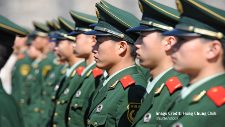China and the Nordics: Tracing Trends in Relations

Julian Tucker and Johannes Nordin
Summary
- Diplomatic relations between Modern China and the Nordic States grew from different points of departure yet followed roughly congruent paths, adhering closely to Beijing’s domestic and regional priorities.
- Trade and political exchanges were instrumentalized to facilitate the immediate goals of Nordic and Chinese leaders, going through periods of greater proximity and disruption as objectives transformed.
- Modern relations have been deeply affected by the increased economic, social, and interpersonal exchanges inherent to the globalized world, with significant implications for discourses on human rights, international value chains, technological development, and security.
- The dual perception of China as both a partner and competitor is fueling a push to reevaluate Sino-Nordic relations. This manifests itself in concerns about the national security impact of mergers and acquisitions, escalated diplomatic rhetoric, and Beijing’s growing willingness to apply economic pressure over political issues. At the same time, the recognition of China’s importance on the international stage necessitates cooperation on financial, governance, and environmental issues.
- Even during periods of lacking state-to-state relations, ideological exchanges continued to shape Sino-Nordic relations. Maoist thought and practice entered Nordic political discourse at a critical juncture, shaping a societal legacy of questioning hierarchy and structures, even after China’s embrace of market principles disillusioned Nordic Maoists.
- Over the past decade, the Arctic has elicited ever more attention from governments, businesses, and civil society. In the context of Sino-Nordic relations, the region occupies a special place with unique challenges and opportunities pertaining to climate change, evolving security considerations, and potential trade and investment flows.
- The main body of the text is sectioned into four parts. The first section explores the historical backdrop of Sino-Nordic relations and provides a brief overview of the interplay between Chinese domestic developments and diplomacy. This is followed by a discussion in the second section of contemporary facets of relations, including economic ties, security concerns, and political considerations. The third section explores an ideological dimension of relations by examining the impact of Chinese political thought and rhetoric on Nordic politics and society. Finally, the report touches upon the Arctic as a unique intersection of Nordic and Chinese interests.
The authors would like to express their gratitude to the Konrad Adenauer
Stiftung, which has made this report possible through its generous support.
Related Publications
-
Challenging Western Views: Understanding Power and Stability in East Asia; An Interview with DAVID C. KANG
Dr. David C. Kang is Maria Crutcher Professor of International Relations at the University of Southern California. A leading expert in East Asian security, international relations, and political economy, Dr. […]
-
The US and EU, and the Emerging Supply Chain Network: Politics, Prospects, and Allies
The Global Supply Chains have evolved from simply logistical achievements to being the bedrock of the global economy. Driven by technological advances and geopolitical shifts, this transformation underscores the critical […]
-
China’s Quest for Military Technology through Foreign and Civil Sources: Strategic Trends under Xi Jinping and Tactical Adjustments amid Geopolitical Challenges
Over the past decades, the military capabilities of the People’s Republic of China (PRC) have witnessed remarkable developments. The Chinese People’s Liberation Army (PLA) has transformed from a large yet […]
-
China as a Black Sea Actor: An Alternate Route
China’s international role has expanded rapidly in the last decades, and the Greater Central Asian region, Europe, and the Middle East, to which the Black Sea region (BSR) connects, are […]
-
Safeguarding intellectual property in the wake of digital authoritarianism: An Interview with DR. REBECCA SPYKE KEISER
Dr. Rebecca Spyke Keiser is the Chief of Research Security Strategy and Policy (CRSSP) at the National Science Foundation (NSF). The U.S. National Science Foundation is an independent federal agency […]




